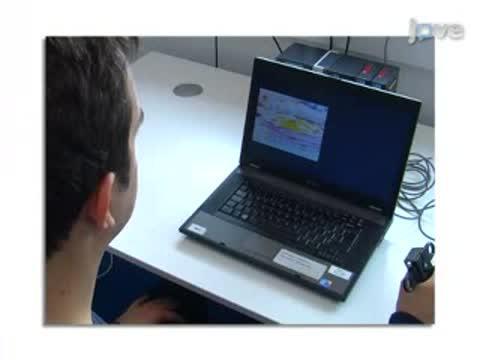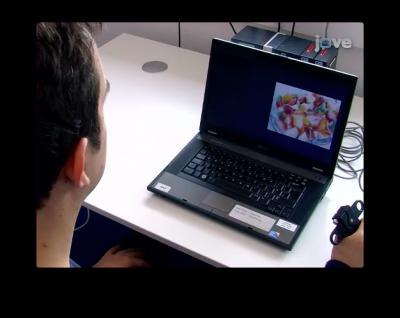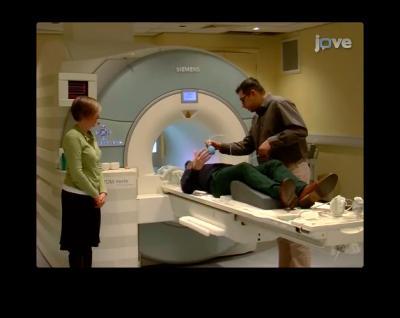According to Dr. Fletcher, typical approaches for evaluating anti-obesity type drugs rely on more subjective methods—like having test subjects self-report their ratings of hunger and cravings.
"When a person is asked how much they subjectively desire a food, they may feel pressured to give a 'correct' rather than a true answer," said Dr. Fletcher, "[Our] grip force task may, under certain circumstances, present a more accurate reflection of what they really want."
Dr. Fletcher and his colleagues brought the technique to JoVE after using it in their earlier publication, "Food images engage subliminal motivation to seek food," published in 2011. They decided to publish a video capturing the protocol "Because it offered the opportunity to demonstrate the methods more fully," he said.

In this JoVE video article, a set of methods to measure food-related motivation and values are described in JoVE's peer-reviewed video article format.
(Photo Credit: JoVE)
In the video, Dr. Fletcher expands on the purpose of publishing the method with JoVE. "Individuals new to the technique may struggle because there aren't many examples of grip-force tasks published in the literature, and there are no full and clear descriptions of how to design and set up the tasks," he said.
With rising concerns surrounding obesity, researchers can use the technique presented in the JoVE video to determine the efficacy of a potential emerging market in anti-obesity medicine.

In this grip-force measurement task, a participant's exerted effort is measured while he views rewarding images like food and consumer goods.
(Photo Credit: JoVE)

In this image, researchers prepare a grip-force measurement task that will take place within an MRI scanner so that the participant's neural activity can be examined.
(Photo Credit: JoVE)





Comments